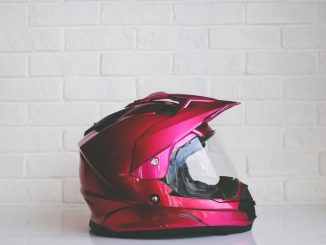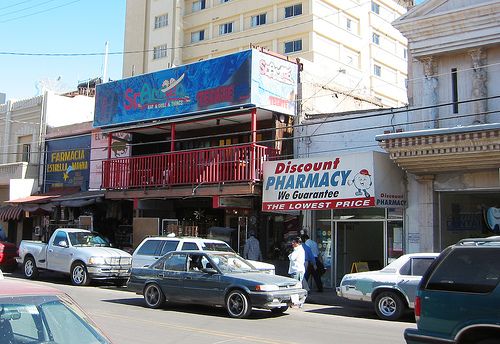
by Justin Garvin
As a parent, keeping your family safe is, and will always be, your number one priority. However, this can be a rather difficult job to do.
One of the trickiest tasks is finding the hidden dangers within your home. Believe it or not, a huge hidden danger that exists in every home is the medicine cabinet. Filled with toothpaste, bandages and ointments, it is usually seen as a must-have, go-to source within the home.
However, aside from these items, your medicine cabinet is also probably filled with prescription and over-the-counter medications. Most homes basically have their very own in-house pharmacy right in their medicine cabinets.
As helpful and as necessary as a medicine cabinet is, there are also many dangers that can arise from not properly tending to it. Keep your family safe and healthy with the following safety tips.
Ailments and minor accidents are bound to arise in every household. Be prepared by first ensuring you have the following items in your medicine cabinet.
Essentials
• Aspirin
• Acetaminophen
• Ibuprofen
• Cough medicine
• Antihistamine
• Hydrocortisone
• Antacids
• Bandages
• Antiseptic
• Gauze
• Rubbing alcohol
• Cotton Balls
Safety Tips for Medicine Cabinet
If you have children, elderly parents or teens within your home, it is necessary to take precautions regarding your medicine cabinet. To protect your family, you can use the following safety tips:
1) Humid Environment of Bathroom Medicine Cabinet Is Not Ideal for All Medications
Always check to see what conditions each medication needs to be stored in. Certain medicines should not be stored in humid environments such as bathroom medicine cabinets. The humid environment of the medicine cabinet is not ideal for some medications. Consider storing them on in a locked bedroom drawer instead.
2) Annual Clean-Up for Expired Medications
Once a year, go through your medicine cabinet to expose of old or expired medication, herbs, or other supplements.
Remember that medication is not limited to prescriptions. Over-the-counter medicine also has an expiration date that you should adhere to.
Put an annual date on your calendar to remind you to do your medicine cabinet clean-out. Your yearly cabinet cleaning is also a great reminder and opportunity to take an inventory of the medical supplies you do have and what you need to stock up on.
Be sure to follow all prescription directions. If a medication is no longer being used, or if your doctor says you should no longer use it, be sure to dispose of it immediately.
3) Dispose Medication in Secure Community Drop-Box Programs
There are also precautions that should be taken when disposing of old medication. While flushing old medicine may seem like the easiest route, remember that drugs can easily taint your community’s water supply.
Instead, research programs in your neighborhood that participate in confidential drug disposal. There are also programs that offer secure drop boxes that are available year round for anyone to drop old medications in.
4) Do Not Store Supplements in Open Areas
Do not forget about vitamins, minerals, medicated patches and supplements. Many people keep their supplements in open areas such as their kitchen counter or table; however, it is necessary to store these away just as you would any other medication.
5) Create a Child-Proof Area
Make a child-proof area that can be locked when needed. Keep medications in this area and be sure to keep the lids tightly closed on any potentially harmful products within your home. Also, as a first step, when possible buy medications that come in child-proof containers.
You can also install an asset protector on your medicine cabinet or anywhere you store your medications. Asset protectors help you keep your family safe even when you are away from home by immediately calling or texting you when your medicine cabinet is opened.
6) Teach Children About Medication Safety
Teach your children about medication safety. While calling medication “candy” might be a great way to get your children to take their medicine, it can also confuse them. Avoid this practice.
7) Keep Medications in Original Containers
Keep all medications in the container they originally came in to avoid confusion and to make sure you have instructions to reference regarding dosages and expiration dates.
8) Do Not Use Another Person’s Medications
Never use another person’s prescribed medications, even if you believe you have once used the same medication or have common symptoms.
9) Organize Your Medicine Cabinet
Stay organized. By keeping your medicine cabinet organized you will be able to keep track of the medicines that have been moved or used, and you will also be able to locate medicines more quickly when you need them.
Utilize these medicine cabinet safety tips to help keep your loved ones safe and healthy!
(These tips are from Justin Garvin who writes for Protection 1®, one of the largest and most respected alarm monitoring companies in the U.S. Justin is a security enthusiast with a passion for safety. He writes on many safety topics including campus safety, online safety, and more. You can visit Protection 1 today for installation, maintenance, and monitoring of single-family home security systems, business security systems and multi-family security systems.)





